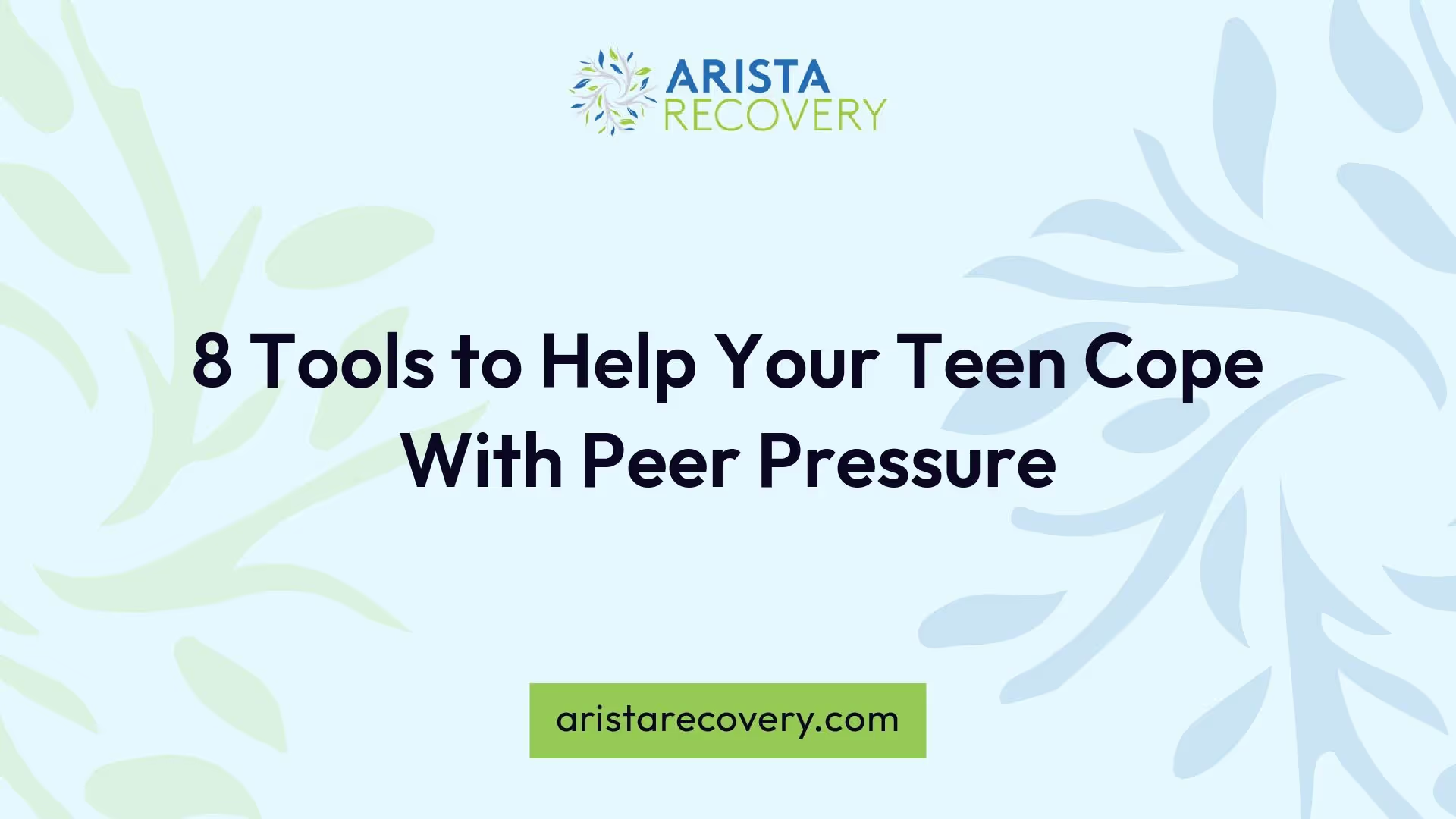8 Tools to Help Your Teen Cope With Peer Pressure

Coping with Negative Peer Pressure
Understanding how to cope with negative peer pressure is crucial for teens as they navigate complex social dynamics. By identifying negative peer pressure and recognizing the types of negative peer influence, they can build effective strategies to resist it.

Identifying Negative Peer Pressure
Negative peer pressure can manifest in various ways, often influencing teens to engage in risky behaviors. These may include substance use, skipping school, stealing, or vandalism, which can ultimately lead to mental health issues such as poor academic performance, depression, and self-harm [1].
Teens may feel compelled to conform to their peers' expectations due to their desire to fit in, be liked, or fear teasing for not going along with the group. It is essential for them to recognize the signs of negative influence which include:
Types of Negative Peer Influence
Negative peer influence can vary in intensity and impact. It can range from mild pressures to severe demands, leading teens to make choices against their better judgment. The table below outlines some common types of negative peer influence:
Type of Negative InfluenceExamplesMild PressureDressing in a certain manner, changing interestsModerate PressureSkipping class, minor rule-breakingSevere PressureSubstance abuse (alcohol, drugs), risky behaviors (shoplifting, reckless driving)
Peers may influence young individuals to take part in specific actions that can have long-lasting repercussions, such as engaging in drug use or underage drinking [2].
Recognizing these different types of peer pressure allows teens to better navigate social situations and make informed decisions. Those facing peer pressure may also benefit from learning about the eight tools help teens cope with peer pressure.
Tools to Resist Peer Pressure
Resisting peer pressure can be challenging for teens. However, several strategies can empower them to make positive choices. Here are eight tools that can help.
Being Assertive
Assertiveness is a critical skill that helps teens express their feelings and needs confidently. Teaching them to say "no" clearly, without feeling guilty, can significantly improve their ability to resist negative influences. It conveys strength and self-assurance, which can deter peers from pressuring them.
Using Humor
Utilizing humor can be an effective way to defuse tense situations. When a teen responds to peer pressure with a lighthearted joke or witty remark, it can shift the focus away from the pressure without escalating the situation. This approach allows them to maintain their integrity while keeping the conversation friendly.
State Your Position
Clearly stating one's position on a subject is essential. Encouraging teens to articulate their beliefs and values helps reinforce their resolve against peer pressure. By expressing their thoughts, they can feel more empowered and confident in their decisions, especially in regards to matters like illegal drug use.
Walking Away
Sometimes the most effective response is simply to walk away. When faced with an uncomfortable situation, removing oneself from the environment can prevent the temptation to give in to peer pressure. This strategy allows teens to seek out healthier social interactions, reinforcing their commitment to their values.
Choosing Friends Wisely
Surrounding themselves with like-minded peers can ease the struggle against peer pressure. Encouraging teens to choose friends who share similar values and beliefs fosters a supportive environment. Such friendships can serve as reinforcement when resisting negative behaviors [3].
Talking Openly
Open communication with trusted adults, such as parents or teachers, can provide teens with guidance and support. Discussing their experiences and feelings about peer pressure can help them develop strategies for coping. Establishing a dialogue about their challenges can also bolster their confidence in handling peer situations effectively.
Tapping into Inner Strengths
Building resilience is crucial in combating peer pressure. Teens should be encouraged to identify and utilize their inner strengths, such as self-awareness, empathy, and emotional intelligence. Developing a strong sense of self can make it easier to defy negative influences and remain true to personal values.
Practicing Self-Love
Promoting self-love enables teens to appreciate their worth and make choices that reflect their values. When they recognize their strengths and accept their flaws, they are less likely to succumb to peer pressure. Techniques such as positive affirmations can enhance self-esteem and encourage a strong sense of self.
Employing these tools can help teens strengthen their resolve against peer pressure, enabling them to navigate social situations with confidence. By developing assertiveness, utilizing humor, and making wise choices in friendships, they can create a supportive environment that fosters independence and self-empowerment. For more insights, explore our articles on five ways you encourage teen use drugs alcohol and five tips to support a loved one in recovery.
References
[2]:
[3]:
[4]:
You’re not alone in this.
When mental health challenges and addiction intersect, it can feel isolating. At Arista, we offer compassionate, evidence-based, and trauma-informed care to help you heal, grow, and move forward.
You’re not alone in this.
When mental health challenges and addiction intersect, it can feel isolating. At Arista, we offer compassionate, evidence-based, and trauma-informed care to help you heal, grow, and move forward.
Support that moves with you.
You’ve taken a brave first step. At Arista Recovery, we’re here to help you continue with best-in-class care designed for long-term healing and support.
.webp)






